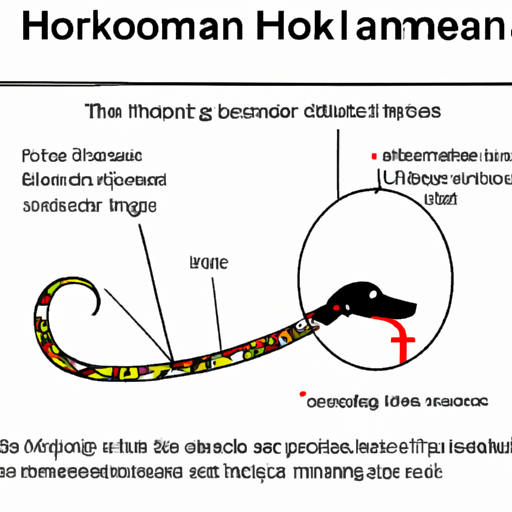As a loving and caring owner, you are the first line of defense when it comes to your dog’s health. One of the challenges that you may encounter is hookworm infection.
Understanding Hookworms
Hookworms are small, parasitic worms that infest the intestines of dogs. They latch onto the intestinal wall, where they feed on your dog’s blood. The two most common species that affect dogs are Ancylostoma caninum and Uncinaria stenocephala.
- Ancylostoma caninum: This is the most dangerous species, responsible for severe anemia, especially in puppies.
- Uncinaria stenocephala: Less harmful but still poses a health risk.
The Life Cycle of Hookworms
Understanding the life cycle of hookworms is key to preventing and treating the infection.
- Your dog ingests hookworm larvae, either through contaminated soil or by cleaning their paws.
- The larvae migrate to the intestines, where they mature into adults.
- Adult hookworms attach to the intestinal wall and feed on blood, laying thousands of eggs each day.
- These eggs are excreted in the dog’s feces, contaminating the soil.
Symptoms of Hookworms in Dogs
Despite their small size, hookworms can cause significant harm. Here are some symptoms to watch for:
- Lethargy or tiredness
- Pale gums
- Diarrhea, sometimes with blood
- Weight loss
- Poor coat condition
- In puppies, a pot-bellied appearance
Diagnosis and Treatment
If you suspect your dog has hookworms, seek veterinary attention immediately. The diagnosis usually involves a fecal exam.
| Test | Description |
|---|---|
| Fecal flotation | Detects hookworm eggs in the feces |
| Blood test | Detects anemia |
Treatment includes deworming medication, which kills adult hookworms. Your vet may also prescribe iron supplements if your dog is anemic.
Prevention is Key
Prevention is always better than cure. Here are some steps you can take:
- Regular deworming: Follow your vet’s deworming schedule.
- Hygiene: Clean up your dog’s feces promptly.
- Regular vet checks: Regular vet checks can help detect a problem early.
FAQ
Q: Can humans get hookworms from dogs?
A: Yes, although it’s rare and usually causes a skin condition called cutaneous larva migrans.
Q: Can I prevent hookworms with a monthly heartworm preventative?
A: Most monthly heartworm preventatives also protect against hookworms.
Q: How often should I deworm my dog?
A: This depends on your dog’s lifestyle and risk factors. Talk to your vet for a personalized schedule.
Remember, you are your dog’s best advocate. By understanding the threat of hookworms, you can keep your furry friend happy, healthy, and parasite-free.



